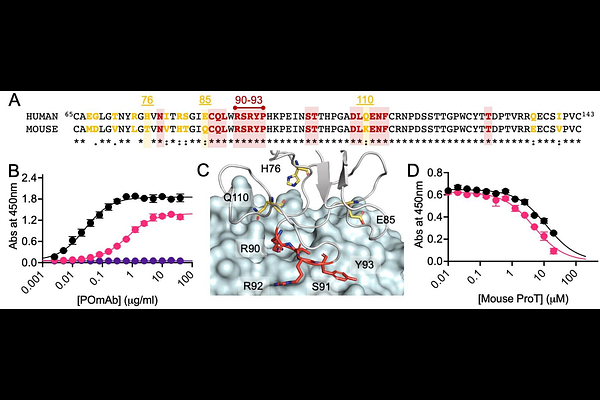POmAb, an antibody targeting open prothrombin, results in anticoagulation without excessive bleeding in mice

POmAb, an antibody targeting open prothrombin, results in anticoagulation without excessive bleeding in mice
Brake, M. A.; Kumar, S.; Merrill-Skoloff, G.; Schulman, S.; Flaumenhaft, R.; Pozzi, N.
AbstractAnti-prothrombin antibodies are commonly found in patients with Antiphospholipid Syndrome (APS), yet their role in clinical manifestations remains unclear. We recently identified two classes of anti-prothrombin antibodies based on their ability to recognize closed and open forms of prothrombin. Type-I antibodies bind to the open form, while Type-II antibodies bind to both forms. POmAb is a prototypical Type-I antibody that specifically targets kringle-1 of prothrombin, maintaining it in an open state. In this study, we assess the effects of POmAb in mice using the cremaster arteriole laser-induced injury model. POmAb bound mouse prothrombin and decreased thrombin generation in mouse plasma. When administered intravenously shortly before the injury, POmAb quickly accumulated on the damaged vessel wall. This accumulation significantly reduced fibrin generation with a modest effect on platelet accumulation and without causing excessive bleeding. Results obtained with POmAb offer insights into the potential roles of the anti-prothrombin antibodies in APS. They also provide proof of concept for a new class of anticoagulants that, by specifically targeting open prothrombin, could mitigate thrombosis with reduced bleeding risk.